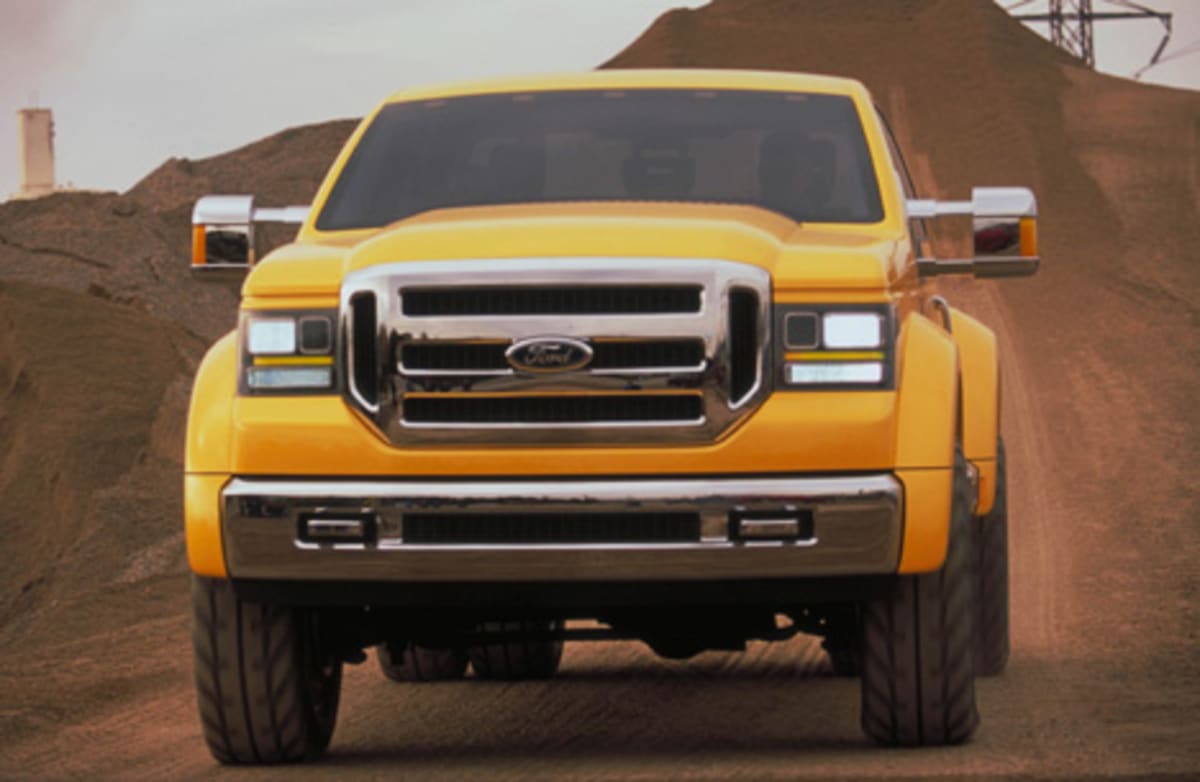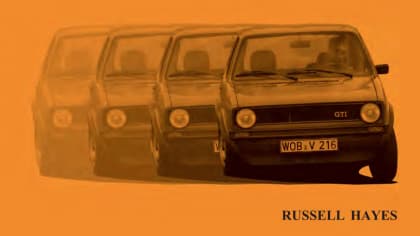ONE CAR, TWO CAR, RED CAR, BLUE CAR
This article is from our archives and has not been updated and integrated with our "new" site yet... Even so, it's still awesome - so keep reading!
Published on Thu, Sep 22, 2005
By: The LACar Editorial Staff

"I'm an environmentalist. Can't you tell?" DOES WHAT YOU DRIVE INDICATE YOUR POLITICAL LEANINGS? John Tierney of the New York Times thinks so. Earlier this year, he reported on a number of studies surveying the vehicle buying habits of Democrats and Republicans. "By analyzing new-car sales, surveying car owners and keeping count of political bumper stickers, they are identifying the differences between Democratic cars and Republican ones," says Tierney. Among the findings: buyers of American cars tend to be Republican - except, for some reason, Pontiac buyers, who tend to be Democrats. Foreign-brand compact cars are usually bought by Democrats - but not Mini Coopers. They are bought by almost equal numbers of Democrats and Republicans. Last year, Tierney reports, the Republican National Committee applied data supplied by Scarborough Research, a New York market research firm, to a range of leisure-time and consumer activities to find where it could reach potential voters with advertising. Part of Scarborough's effort was to survey 200,000 car owners about their political affiliations. Scarborough evidently found that Porsche owners identified themselves as Republican more often than owners of any other cars, with 59 percent calling themselves Republicans, 27 percent Democrats and the rest either calling themselves independents or declining to answer. Jaguars and Land Rovers also registered as very "Republican" vehicles. Scarborough determined that Volvos were the most "Democratic" cars, by 44 to 32 percent, followed by Subarus and Hyundais. On the other hand, although a lot of old Volvos on the road are driven by Democrats, the customers in Volvo showrooms no longer fit the old stereotype, Tierney reports that a survey of 163,000 new-car buyers last year conducted by CNW Marketing Research of Bandon, Oregon revealed a new twist to Volvo ownership. As Volvo's advertising has stressed performance in addition to safety, more and more Republicans are buying Volvos. "The CNW survey last year showed that Democratic buyers of Volvo cars outnumbered Republicans by only 32 percent to 27 percent," says Teirney. "Volvos have become more plush and bourgeois, which is a Republican thing to be," Slate's Gearbox columnist Mickey Kaus informed Tierney.. "Subaru is the new Volvo - that is, it is what Volvos used to be: trusty, rugged, inexpensive, unpretentious, performs well, maybe a bit ugly. You don't buy it because you want to show you have money; you buy it because you have college-professor values." The CNW survey, which measured political affiliation not just by make but also by model, finds that a Jeep Grand Cherokee SUV is more than half again as likely to be bought by a Republican than by a Democrat, at 46 percent to 28. Among Hummer buyers, the Republican-to-Democrat ratio is a whopping 52 to 23. According to CNW's figures, staunch Democrats also drive SUVs, but they tend to prefer smaller, foreign-made ones. "Republicans generally like them bigger and American-made, or at least bearing the name of an American company, even if they were built elsewhere," says Tierney. "There is a certain resistance that male new-car buyers have to minivans even in a household with two or three kids," explains CNW President Art Spinella to Tierney. "For the most part, red-state households are more male-dominated when it comes to decision-making for a vehicle. In blue states, it's more of a joint decision-making process." Because the Democratic women get more of a say in the decision, their families end up with more minivans than SUVs. According to CNW, Democrats also tend to consider a wider range of cars before buying. "In red states, there's more affinity to specific brands or loyalty to the same brand they had before," Spinella said. "A person in a red state will start with an average of 2.5 vehicles on the shopping list. In the blue states the average is 6." Perhaps not surprisingly, the blue-staters are a lot more likely to put hybrid cars on their list, says Tierney: buyers of the Toyota Prius hybrid were Democrats by a 35 to 22 percent. Democrats in general are more fond of smaller cars. Besides having fewer children, Democrats tend to be younger, less affluent and more likely to live in cities where small cars are easier to park, Tierney reports. All surveys found that nothing is more Republican than a big pickup, according to Tierney. "The No. 1 vehicle bought by millionaires is the Ford F-Series pickup truck," CNW's Spinella remarked to Tierney. "They're farmers, ranchers, contractors, independent businesspeople. They basically work for themselves and they have substantial assets." The Saab is a Democratic car, according to both CNW and Scarborough, which found that Saab owners were about twice as likely to be Democrats. "It's an upscale car an affluent Democrat can drive without feeling guiltily ostentatious while also reveling in a different sort of status symbol," Scarborough President Bob Cohen informed Tierney. "The Saab owner is not going after the obvious status symbol like a BMW," Cohen said. "He wants to make a statement that he's in a small group with specialized knowledge who don't go for a safe choice like BMW, because he can get a better deal with a Saab." Saturn owners are also prone to put their Democratic loyalties on display, at least according to a count undertaken by Political Bumpers (billed as "an extremely unscientific" project undertaken near the end of the presidential campaign last year). Volunteers counted more than 1,300 bumper stickers in a half dozen states from September 20th to October 31st, 2004, and came up with results (www.laze.net/bumpers) that roughly corroborate the much larger market-research surveys. The Political Bumpers spotters, who recorded bumper stickers in favor of or against any of the candidates in the 2004 election, found that the drivers of pickup trucks and large SUVs were overwhelmingly right-leaning. But the leader of the project, Ryan MacMichael, said his biggest surprise was the pronounced Democratic skew of bumper stickers on economy cars (71 percent were left-leaning) and station wagons (67 percent). The most left-leaning models with at least a dozen sightings in MacMichael's project were the Honda Civic (80-20 left-leaning), Toyota Corolla (78-19) and Toyota Camry (74-26). The list of most right-leaning was led by another Toyota, but a midsize SUV, the Toyota 4Runner (86-14), followed by the Ford Expedition (76-24) and Ford F-150 (75-25). To CNW's Spinella, those bumper stickers merely provided further proof of the most fundamental difference between the two parties. "Democrats buy cars," he said. "Republicans buy trucks." For the full report, go to the April archives of the New York Times. This piece comes courtesy of our LA Car Blog.




